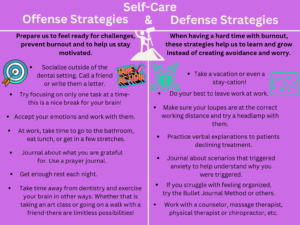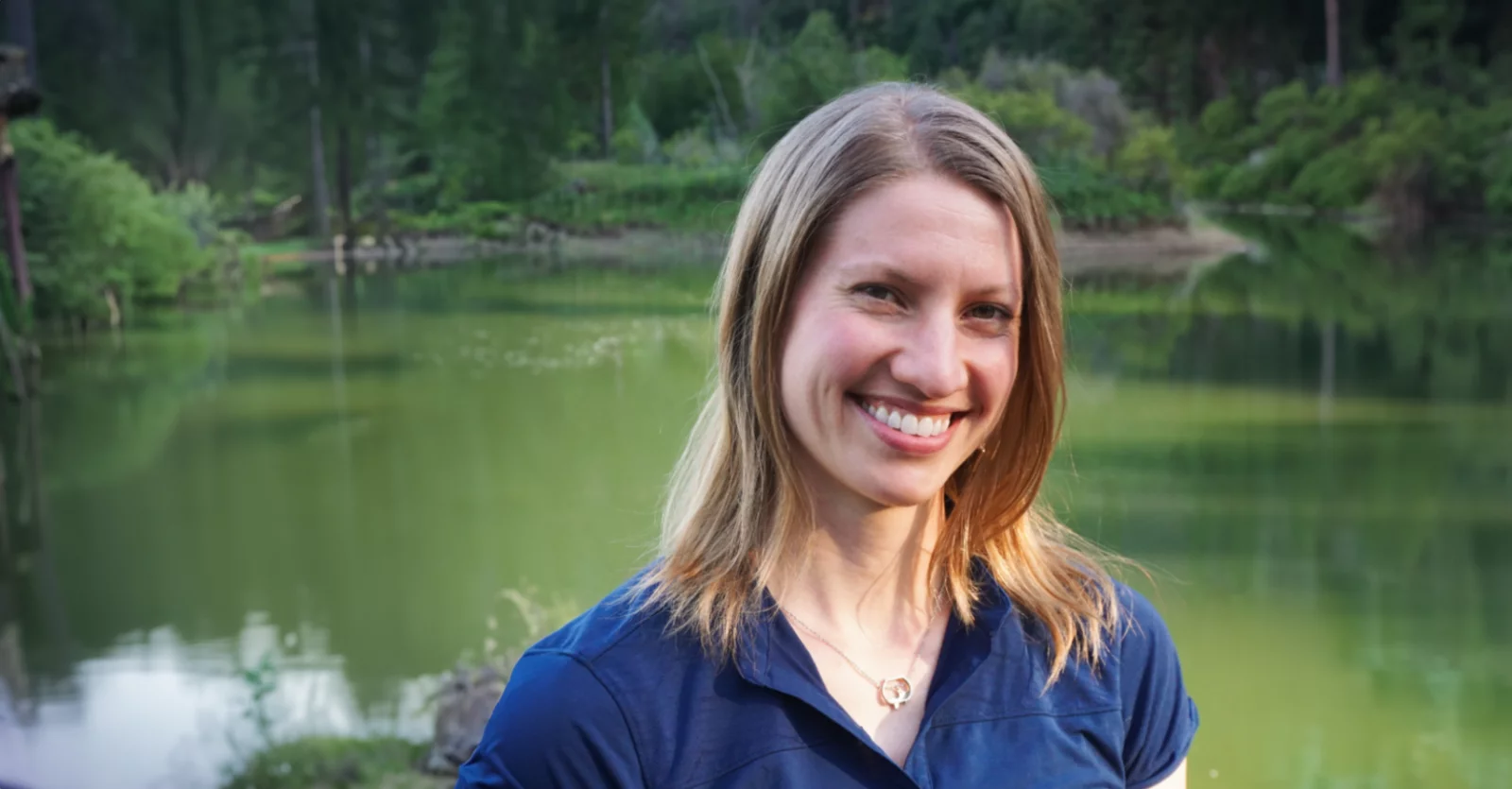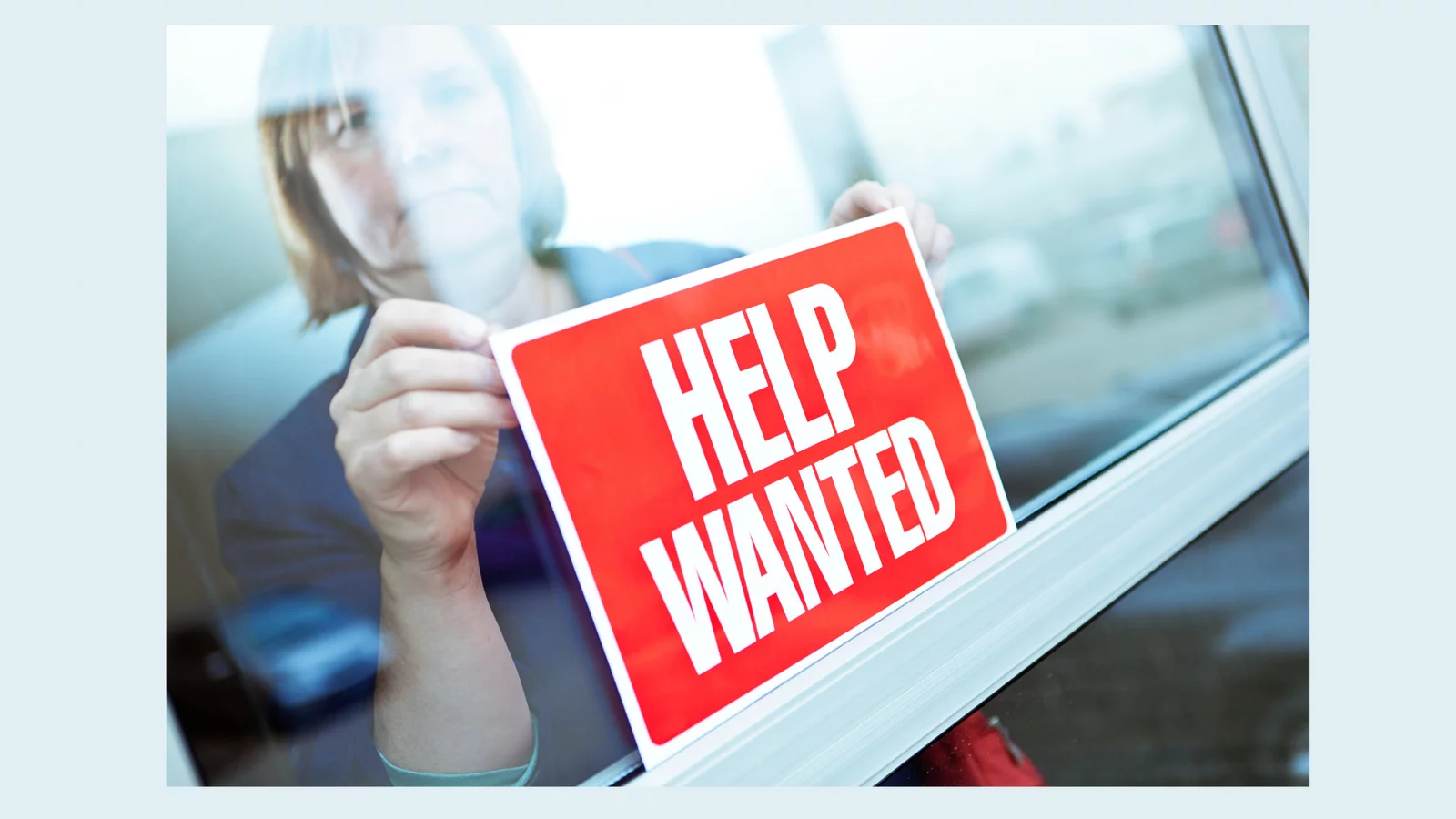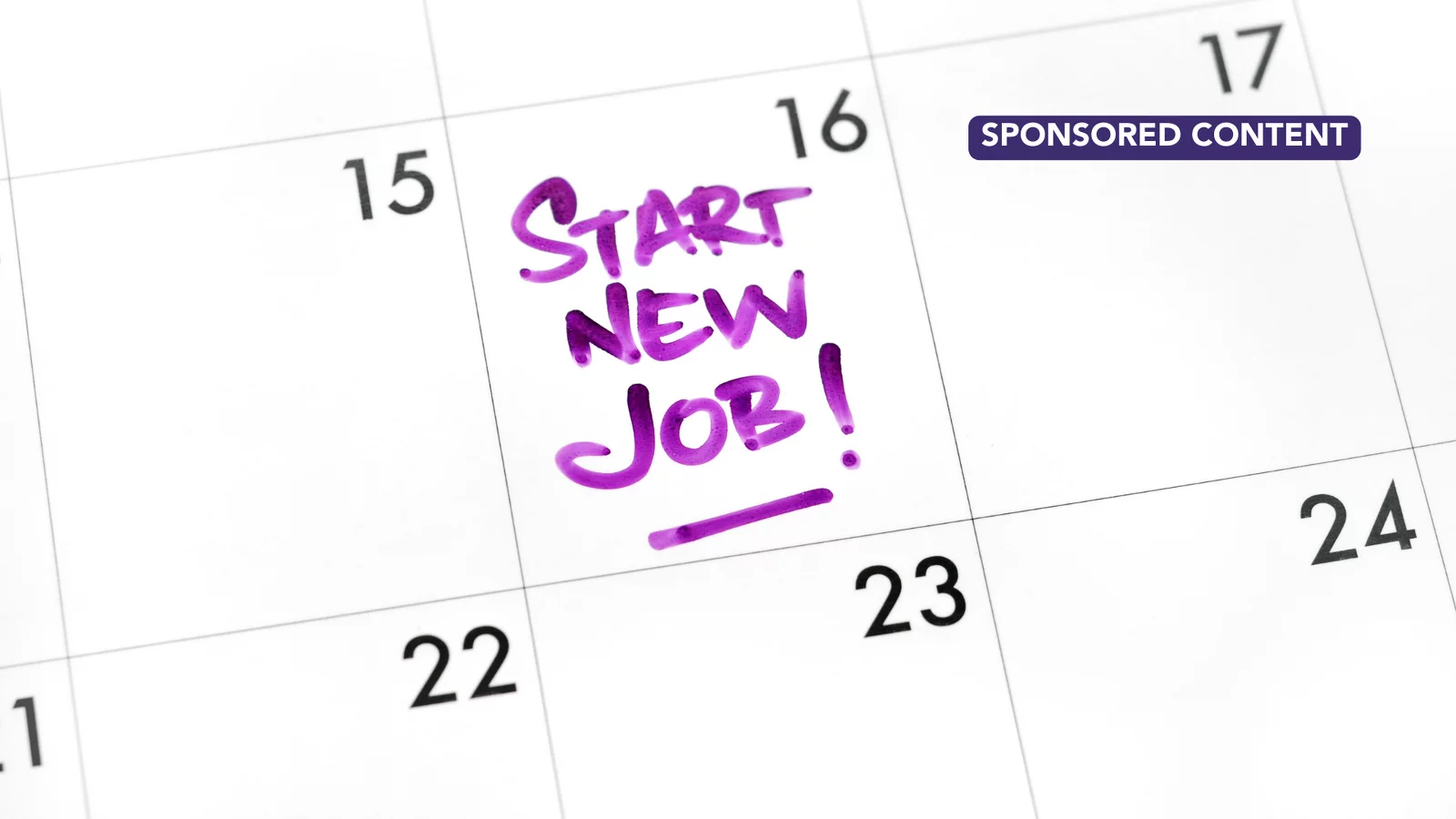by Kristin Maxwell, RDH
February 4, 2025
My name is Kristin Maxwell. I am a dental hygienist.
I used to be perfect. I used to speak to myself as my meanest inner critic. I used to only prioritize and please others instead of myself, and I used over-empathy to try to fix my patients’ emotional pain; all while allowing every mistake I made to degrade my self-worth. This pattern led to such severe burnout that I experienced life-ending thoughts. As a result, I stepped away from dental hygiene for a period of time to recover. It’s important to know that it’s possible.
When I eventually returned to my career, I was equipped and determined to better protect myself from burnout because I certainly wanted to avoid going down that path again. I also wanted more for myself than just managing my anxiety. And, finally, I wanted to share with others what I learned from my burnout experience and what guided me to improve my self-care.
What Is Burnout?
“Burnout is a decrease in resilience to stressors in life emotionally, mentally, and physically. Life is made up of good and bad stress. How we perceive scenarios, and their outcomes, determines the amount of stress we feel. Burnout sets in when you don’t have a healthy balance of work and home life, rest, and play.”1 Problems can seem bigger than they really are, and solutions can be hard to identify. You might even see yourself as the problem and not a solution!
Burnout can be associated with feelings of hopelessness, inferiority, low self-esteem, low self-confidence, and more.2 By not being able to recognize feelings of burnout, I did not know how to break my self-imposed cycle. Feeling defeated, I walked away from dental hygiene intending not to return. (Ultimately, I was able to return and recover from burnout!)
What Is Self-Care?
Self-care takes many forms, physical and non-physical. For me, “self-care is the ability to recognize when you need help and when to keep yourself moving through fear to grow into the person you want to become. Incorporating self-care daily can restore and refresh our perspectives on life’s situations so we can seek fulfillment and prevent burnout. Self-care is making time for yourself and balancing work and personal life, all while having an awareness of your feelings and fulfilling your needs. Self-care helped me identify ways to be proactive against burnout as well as enjoy life.”3

Many activities and strategies can be considered self-care. Here are a few self-care strategies that have and continue to help me. Image courtesy of Kristin Maxwell.
Advocate for yourself. Ask for help.
We cannot do everything on our own. I could have saved myself from years of burnout had I just asked for help, worked with a counselor sooner, or contacted the National Suicide Hotline.4
Admit that you are not perfect.
Having this false sense of perfection made me terrified of making mistakes which prevented me from learning from stressful situations. Instead, I now try to be excellent at embracing my mistakes and do the best I can each day.
Be a coach, not a critic.
Be nice to yourself. If you speak harshly to yourself with the voice of an inner critic, it is time to talk to yourself with the voice of an inner coach. Coaches want the best for their athletes and know when tough love is and isn’t needed. The next time you give your patient an encouraging pep talk about their flossing, remember to give yourself a nice pep talk about how well you handled getting an anxious patient numb when it made you really nervous.
Please your own personal integrity instead of others.
You don’t have to take everyone’s advice with credence. Remember “most advice is as good as a single-use toothbrush”,5 so don’t let it harm your self-worth.
Show compassion instead of carrying the emotional load.
We can’t remove someone’s emotional pain like a piece of calculus. Instead of compounding your anxiety with that of others by over-empathizing, use compassion and reassuring care. This helps to empower them and maintains boundaries for you. Compassion is more effective at navigating the emotional side of dentistry. “The emotional side of dentistry has to do with the emotions we encounter from our patients and peers while we carry out our workday serving others, and the impact this has on our overall emotional state.”6 Learning how to handle others’ emotions and my responses to them has significantly reduced my anxiety in previously challenging situations.
List your stressors and uncover their reasons.
Make a list of situations that cause you anxiety and stress, to learn why. This technique helped me uncover and address anxiety sooner and begin to overcome it when faced with triggering scenarios. Making this list also helped me get better at setting the tone in the operatory. This has had a profound impact on my workday, allowing me to recover from stressful situations better.
What contributes to burnout can be different for everyone! My burnout resulted from not understanding how to work through difficult emotions and situations. Aside from our self-imposed pressures, other stressors can cause burnout such as our workplace expectations and demands.7
Who is the “Post-Burnout Me”?
My name is still Kristin Maxwell. I work as a dental hygienist.
I strive for excellence each day, but I am okay when things just don’t go right. I listen to my inner coach so I can accept constructive criticism and maintain my self-worth intact. I know my personal values and integrity, which helps me define my boundaries. I use compassion instead of over-empathy when working through the emotional side of dentistry, which helps keep me from mixing my emotions with those of my patients.
I use over 70+ self-care strategies that help me stay proactive to prevent burnout so I can maintain and enjoy my career in dental hygiene. By sharing my experience, I hope to help others prevent burnout. These strategies among others have certainly helped me learn from my mistakes and improve how I care for myself so I can enjoy my life and my career.
It takes effort and hard work but it’s worth it!
____________________________________
References:
1Kristin Maxwell, Scaling Burnout: Navigate the Emotional Side of Dentistry and Prevent Burnout, 2nd ed. (Kindle Direct Publishing, 2024), 19.
2Kristin Maxwell, “Strategies for the Emotional Side of Dentistry,” October 11, 2024, https://kmaxwell.com/blog/2024/10/11/strategies-f/.
3Kristin Maxwell, Scaling Burnout: Navigate the Emotional Side of Dentistry and Prevent Burnout, 2nd ed. (Kindle Direct Publishing, 2024), 7.
4“988 Suicide & Crisis Lifeline,” 988 Lifeline, accessed October 18, 2024, https://988lifeline.org/.
5Kristin Maxwell, Scaling Burnout: Navigate the Emotional Side of Dentistry and Prevent Burnout, 2nd ed. (Kindle Direct Publishing, 2024), 78.
6Kristin Maxwell, “Strategies for the Emotional Side of Dentistry,” October 11, 2024, https://kmaxwell.com/blog/2024/10/11/strategies-f/.
7Substance Abuse and Mental Health Services Administration, Addressing Burnout in the Behavioral Health Workforce Through Organizational Strategies, Publication No. PEP22-06-02-005 (Rockville, MD: National Mental Health and Substance Use Policy Laboratory, 2022), https://store.samhsa.gov/sites/default/files/pep22-06-02-005.pdf.
____________________________________

Kristin Maxwell, RDH, is an ADHA member and has been a dental hygienist since 2009. She received her training at Columbia Basin College in Pasco, Washington. Kristin experienced burnout to the point of life-ending thoughts from 2012-2015. She worked hard at overcoming her burnout and returned to dentistry with a new sense of self-worth and a better work-life balance. Now, Kristin hopes to help other hygienists protect their mental well-being with her first book, Scaling Burnout: Navigate the Emotional Side of Dentistry and Prevent Burnout. Learn more about Kristin, her journey and her work at https://kmaxwell.com/home/. Kristin can be reached at [email protected].
Editor’s Note: This article shares one hygienist’s personal journey and the self-care strategies that worked for her. ADHA values members sharing their personal experiences, however anyone experiencing burnout or depression is also encouraged to seek support from qualified mental health professionals. The 988 Suicide & Crisis Lifeline is available 24/7.



